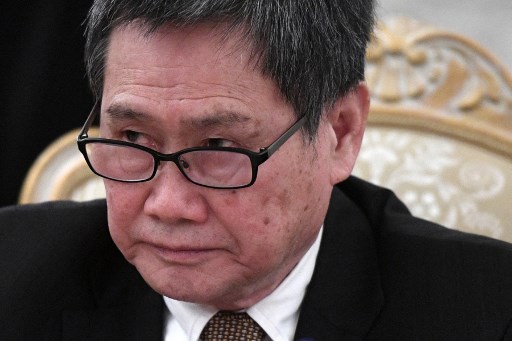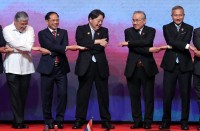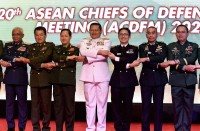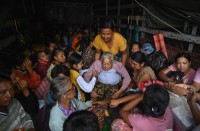
YANGON, Myanmar (AFP) — Envoys from the Association of Southeast Asian Nations arrived in Myanmar Thursday for talks with junta leader Min Aung Hlaing, as the coup-stricken nation enters its fifth month of crippling unrest.
Myanmar has been in chaos and its economy paralysed since the February coup, with more than 800 people killed in a brutal military crackdown on dissent, according to a local monitoring group.
Erywan Pehin Yusof, Brunei’s second minister for foreign affairs, and ASEAN Secretary-General Lim Jock Hoi arrived in the capital Naypyidaw late Thursday, a senior Myanmar official, who didn’t want to be named, told AFP.
The envoys will meet Min Aung Hlaing on Friday morning, the official added, and the junta’s information team told journalists that they would shortly release more information on the meetings.
ASEAN has led diplomatic efforts to resolve the crisis in Myanmar, but the regional bloc is not known for its diplomatic clout and observers have questioned how effectively it can influence events in the country.
While the European Union and the United States have ramped up sanctions on Myanmar’s generals, ASEAN has struggled to form a united front.
“The leadership for trying to find a political solution for the Myanmar situation belongs to ASEAN,” EU foreign police chief Josep Borrell told journalists in Jakarta on Thursday.
– ‘Dead on arrival’ –
It was not immediately clear whether the envoys would also meet members of a shadow government formed by ousted lawmakers — mostly from Aung San Suu Kyi’s National League for Democracy party — which has sought to bring anti-coup dissidents together.
“ASEAN diplomacy dead on arrival,” Myanmar analyst David Mathieson told AFP.
“The West will likely sound support for this visit, sending clear signals to Naypyidaw their coup is succeeding.”
The junta has classified members of the shadow government as “terrorists”, meaning anyone speaking to them — including journalists — can be subjected to charges under counter-terrorism laws.
Min Aung Hlaing attended a meeting on the crisis with the leaders of the 10-country ASEAN bloc in April — his first overseas trip since he seized power.
Following that meeting — which was closed to media — leaders issued a “five-point consensus” statement that called for the “immediate cessation of violence” and a visit to Myanmar by a regional special envoy.
But the general said in a later television interview that Myanmar was not ready to adopt the plan.
A special envoy has yet to be appointed and violence has continued across the country.
‘Not the right time’
The UN special envoy for Myanmar, Christine Schraner Burgener, was present on the sidelines of the April summit, but has yet to receive permission to travel to Myanmar.
She said last week she had been told by the junta that now was “not the right time” for her to go to Myanmar.
The head of the International Committee of the Red Cross, Peter Maurer, was granted a rare meeting with Min Aung Hlaing on Thursday, the charity said.
Maurer called for increased access for the charity, and a resumption of humanitarian visits to prisons that had been suspended due to Covid-19, the ICRC said in a statement.
The military has justified its power grab by citing alleged electoral fraud in the November poll, which the NLD won in a landslide.
Ousted civilian leader Aung San Suu Kyi has only been seen in public once since the coup.
She has been hit with a string of criminal charges including flouting coronavirus restrictions during last year’s election campaign and possessing unlicensed walkie-talkies.
She vowed last month that her party would “exist as long as the people exist.”
© Agence France-Presse








